This is the second of a two-part SevenPonds interview with Andrew Corson, Director of the Willed Body Program at the University of California, San Francisco. (Read part one here.) A division of the UCSF Department of Anatomy, the program provides donated human bodies to the UCSF medical and dental schools and a variety of research and educational programs across Northern California. Today Andrew speaks with us about how he became involved with the Willed Body program, what it is, and why whole body donation is important to scientific and medical progress.
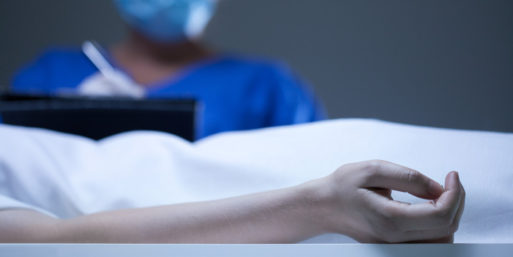
Credit: huffingtonpost.ca
Kathleen: Andrew, can you explain a bit about the process of donating one’s body to the UCSF Willed Body Program?
Andrew: Certainly. For most people, the first step in making the decision to donate is to go to our website and read about the program and how it works. We provide a downloadable application that interested donors can fill out and return to us that also explains the goals of the program and the various ways in which our cadavers are used.
Even after reading the information offered on our website, however, most potential donors have questions and concerns, so we encourage them to call our office directly and speak to me or one of our program coordinators. Deciding to donate one’s body to science is a momentous decision, and we want people to be completely comfortable with the process before they decide to move forward.
Kathleen: Does the form need to be notarized?
Andrew: No, but two witness signatures are required. The witnesses must be over 21, and we prefer that one of them is a family member. According to California law, the other witness must be a “disinterested” third party with no familial or legal ties to the donor.
Kathleen: After the donor signs and returns the donation agreement, what happens next?
Andrew: After UCSF receives the application, we review it to determine if the applicant is a suitable donor. If they are, we send a letter accepting the donation along with a donor card.
Kathleen: Once the donation agreement is signed can the donor revoke his consent?
Andrew: Absolutely. Consent can be rescinded in writing at any time.
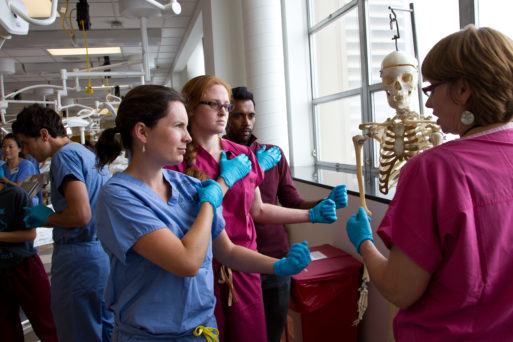
Medical students discuss anatomy in UCSF lab
(Credit: Susan Merrell)
Kathleen: Are there any exclusion criteria for donation, such as age limits or medical conditions that would preclude a donor’s body from being used?
Andrew: Yes, although there are far fewer than many people think. For instance, there is no upper age limit for donors, and the only medical conditions that prevent UCSF from accepting a donation are Creutzfeldt-Jacob disease, tuberculosis, hepatitis B or C, and HIV/AIDS. Due to the nature of the embalming process, we also have an upper weight limit of 250 pounds.
Kathleen: What about bodies that have been autopsied or sustained severe trauma — for example, in a car wreck?
Andrew: Unfortunately, we cannot accept bodies that have sustained extensive trauma. Typically, this includes bodies that have been autopsied.
Kathleen: Is there a way that a person can donate his body to the Willed Body Program and also donate an organ or organs to patients on the organ-transplant list? Or are the two programs mutually exclusive?
Andrew: Not at all. A person can be an organ donor and still participate in whole body donation as long as he makes his wishes clear. That’s one reason why we strongly encourage our potential donors to speak with their families about their bequest and make their wishes known in their Advance Directives and their wills.
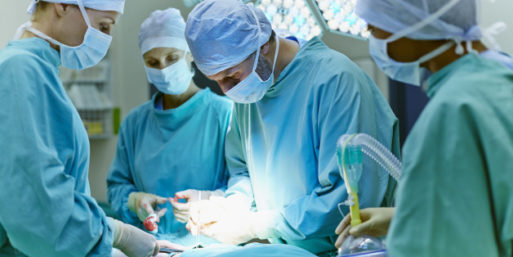
Doctors often perfect surgical techniques using donated bodies
(Credit:huffingtonpost.com)
Kathleen: Speaking or survivors and loved ones, what should they do when a person who has made a bequest to the Willed Body Program dies?
Andrew: The next of kin, executor of the estate or hospital personnel should call the Willed Body Program as soon as possible after the death. A short delay of a few days does not preclude our using the body, but it is best that we receive it as quickly as possible. If the death takes place in Northern California, the program will arrange and pay for transportation of the body to our facility. If the person dies elsewhere, we may arrange for the body to be transported and donated to another University of California facility, with the family’s consent.
Kathleen: Can a person donate the body of a loved one after death?
Andrew: Yes. If a loved one dies without signing a donation agreement, the next of kin can donate the body to the Willed Body Program. Because time is of the essence, anyone who wishes to do so should call our office as soon as possible after their loved one dies.
Kathleen: Lastly, Andrew, do you have any tips you can offer our readers who may wish to participate in the program at UCSF?
Andrew: Yes. Here are a few suggestions to help the process go more smoothly:
**First and foremost, complete the application as soon as you have made your decision to donate. It’s far easier to facilitate the process in a timely and sensitive manner if you register in advance.
**Communicate your desire to donate your body to your spouse, children and the executor of your estate.
**If you have not already done so, complete your Advance Directive and make sure your loved ones know where it is kept.
Kathleen: Thanks so much, Andrew. I appreciate your taking the time to share this information with our readers.
Andrew: You’re very welcome.

 What Is Whole Body Donation? An Interview with Andrew Corson, Part Two
What Is Whole Body Donation? An Interview with Andrew Corson, Part Two

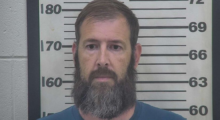
 Funeral Home Owner Chris Johnson Spending Halloween in Jail
Funeral Home Owner Chris Johnson Spending Halloween in Jail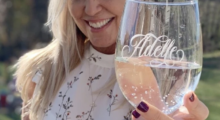
 Our Monthly Tip: Toast a Loved One with a Personalized Glass
Our Monthly Tip: Toast a Loved One with a Personalized Glass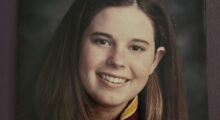
 My Cousin’s Death Taught Me the Meaning of Life
My Cousin’s Death Taught Me the Meaning of Life














